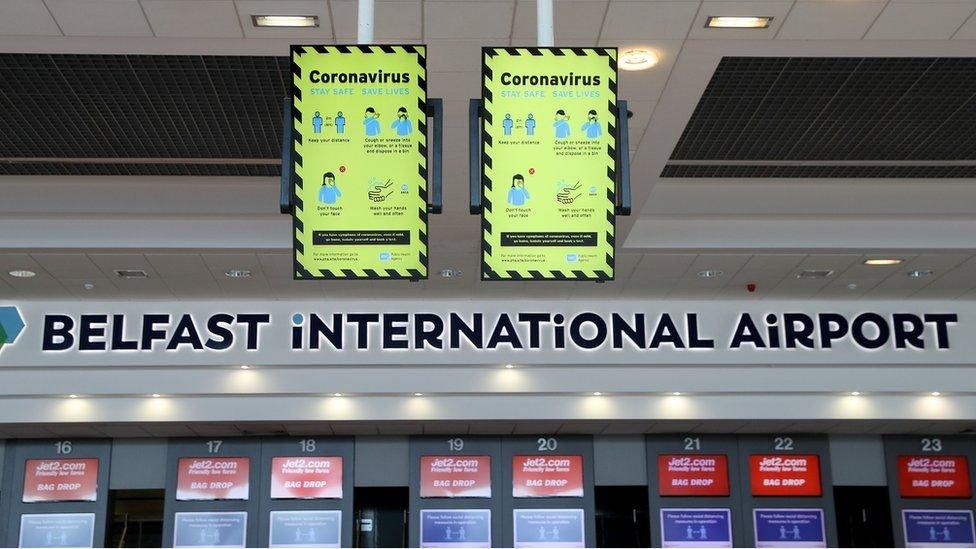Covid-19: What might a 'tighter' NI lockdown look like?
- Published
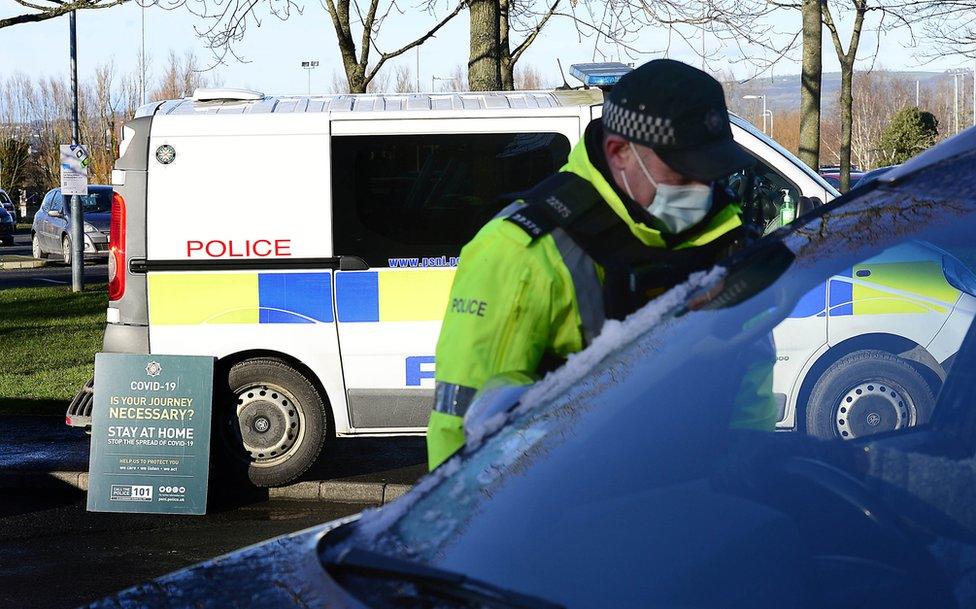
Police checkpoints have seen officers questioning people about whether their travel is essential
Northern Ireland has been in lockdown since 26 December, in a bid to control the spread of Covid-19.
Restrictions had been eased in the run-up to Christmas, which led to a sharp spike in cases in January, causing severe pressure on the health service.
Medically-trained military personnel will be deployed to help, but a union has questioned the move and said NI should have entered a stricter lockdown sooner.
With Stormont ministers extending the current lockdown, could other measures could be on the table?
Extension of the lockdown
It's worth bearing in mind that NI is already in tight lockdown restrictions and has been for almost a month.
But the current measures are now set to remain in place until at least 5 March.
Deputy First Minister Michelle O'Neill said health officials had not requested any other measures be toughened up at this time, given the duration and extent of the current rules.
The initial lockdown began last March, with non-essential retail not permitted to open again until 12 June.
Enforcement
By law people are required to stay at home during the lockdown unless they have a reasonable excuse, such as going out for exercise, medical or food needs.
People are also required to wear face masks in shops and on public transport, with only a limited number of exemptions.
Those who breach the rules can face fines, with businesses that break the law also able to be fined if they do not follow the rules.

However, DUP minister Edwin Poots has expressed concern that not enough has been done by the PSNI to enforce the laws.
It is a difficult balance for the executive to strike.
They previously announced that "Covid marshals" would be deployed in the retail sector to ensure social distancing in queues and adherence to the rules.
Ministers want to ensure as many people as possible follow the restrictions voluntarily while ensuring the PSNI has enough powers to manage the situation.
Health Minister Robin Swann has not ruled out revisiting whether the level of fines people can face should be increased, and said he would raise the matter with his executive colleagues.
Shutting other sectors
The 2020 lockdown saw many businesses right across Northern Ireland forced to close, with retail and hospitality among them.
There was confusion over whether construction and manufacturing should stop, with the executive later clarifying that essential work on building sites could continue.
In the latest lockdown, the sector has been permitted to remain fully open.
In the Republic of Ireland, all non-essential construction has been ordered to stop during a fresh lockdown there.
Like in the previous lockdown, people have again been told to work from home unless they cannot.
But it is worth pointing out many companies have had time to prepare since last March, making their workplaces Covid-secure to allow more staff to attend in person.
The executive has a defined list of essential businesses here, external.
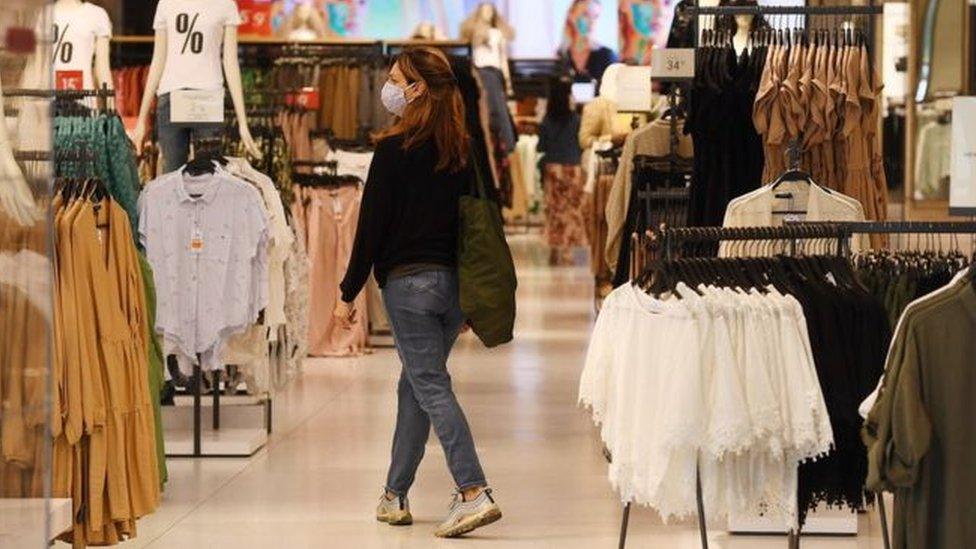
Face coverings in shops are mandatory in Northern Ireland's shops
There has also been confusion about what elements of the retail sector can operate.
All but essential retail shops were told to close on 26 December, and click-and-collect is only allowed for those essential retailers.
But concerns were later raised that some larger chains were "gaming" the regulations by selling non-essential items, with smaller independent shops who had to close arguing they were being treated unfairly.
The executive met with retailers last week to discuss this, but it seems unlikely it will act to define essential items in regulations.
A similar situation in Wales last year led to criticism after supermarkets were told by law not to sell certain items.
Schools
The majority of pupils are in an extended period of remote learning until after half-term in February, but some children of key workers and vulnerable children are still permitted to attend the classroom.
Last week it emerged that at least eight times as many pupils in Northern Ireland attended schools in the first week of term in 2021 compared to the first lockdown in 2020.

Though part of this is due to special schools remaining open for all pupils, unlike in March to June last year.
The executive could potentially revisit the list of services it defines as meeting the "key worker" definition for childcare, if it wanted to reduce this further.
It is also possible schools could remain closed to most pupils for a longer period, in line with extending the lockdown to 5 March.
Work carried out in homes
The executive says workers, builders, tradespeople and other professionals can continue to go into people's houses to carry out work such as repairs, installations and deliveries.
But it does not define further what this type of work should include.
It is possible ministers could tighten the circumstances in which work can be carried out in someone's home, but the guidance already specifies a limited number of exemptions, external for allowing others inside your home during the lockdown.
House moves are also allowed under the regulations, although they were paused in the first lockdown.
Music lessons and private tutoring are permitted in someone's home, with mitigations.
Curfew
During the first week of lockdown from 26 December, people were told not to leave their homes between 20:00 and 06:00 every day - effectively amounting to a curfew.
Ministers could decide to impose the measure again, if they felt that was necessary - but initially it was imposed to stop house parties over New Year's Eve.
Travel
All but essential travel is not permitted outside of Northern Ireland, and anyone entering Northern Ireland must self-isolate for 10 days on arrival or face a fine.
However, there is no formal travel ban on passengers from Great Britain or the Republic of Ireland entering Northern Ireland.
The executive had voted by a majority before Christmas not to impose such a ban, despite calls from Sinn Féin for it to happen.
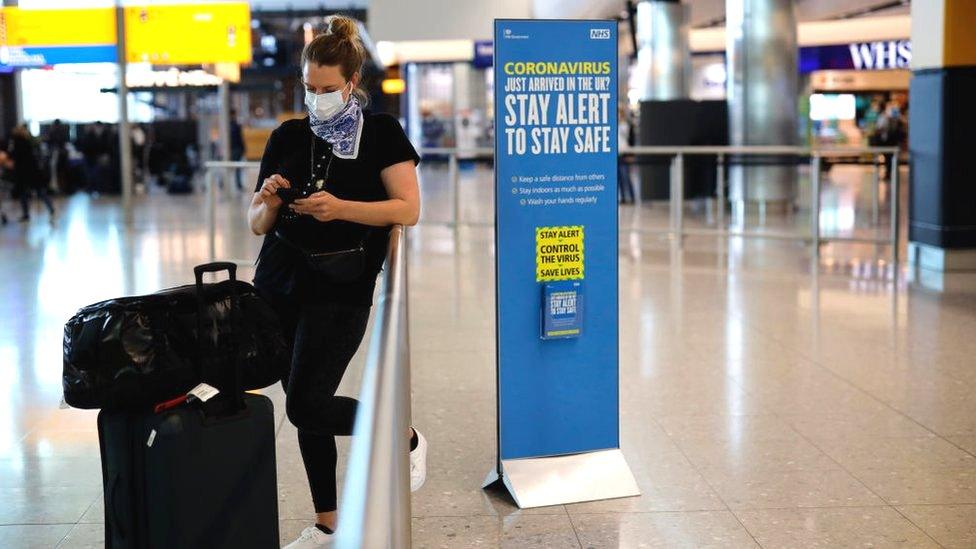
Other parties argued that the public health advice did not propose a ban in law, and that travel from the Republic of Ireland to NI should be restricted as well due to its rise in cases.
The current guidance states, external that anyone coming into NI from within the Common Travel Area who is staying for more than 24 hours should self-isolate for 10 days, but there are exemptions for those who "cross the border" regularly for work or other essential reasons.
The executive also does not have a formal limit in law for travelling to exercise, unlike in the Republic of Ireland where it is 5km (3 miles).
Justice Minister Naomi Long said there is an "advisory limit" of 10 miles for exercise in Northern Ireland.
- Published21 January 2021
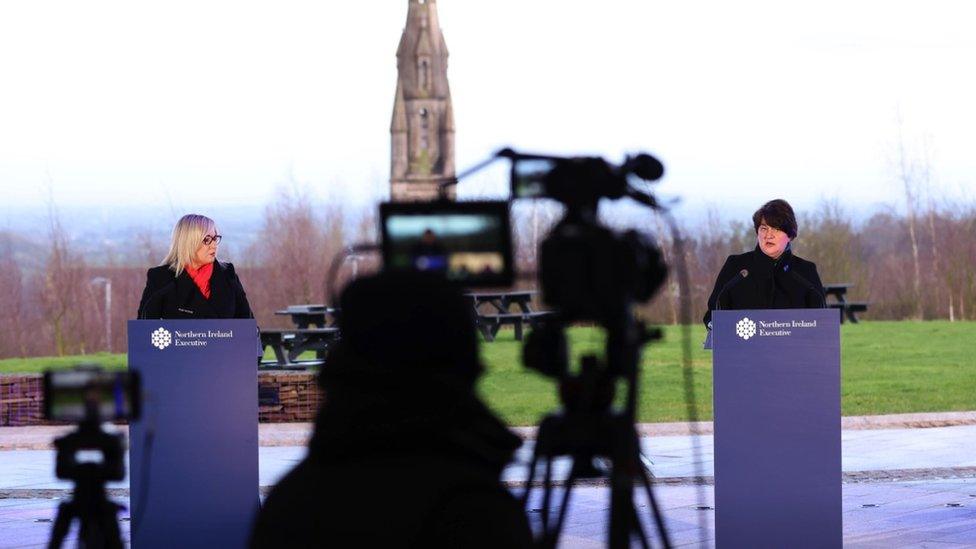
- Published20 January 2021
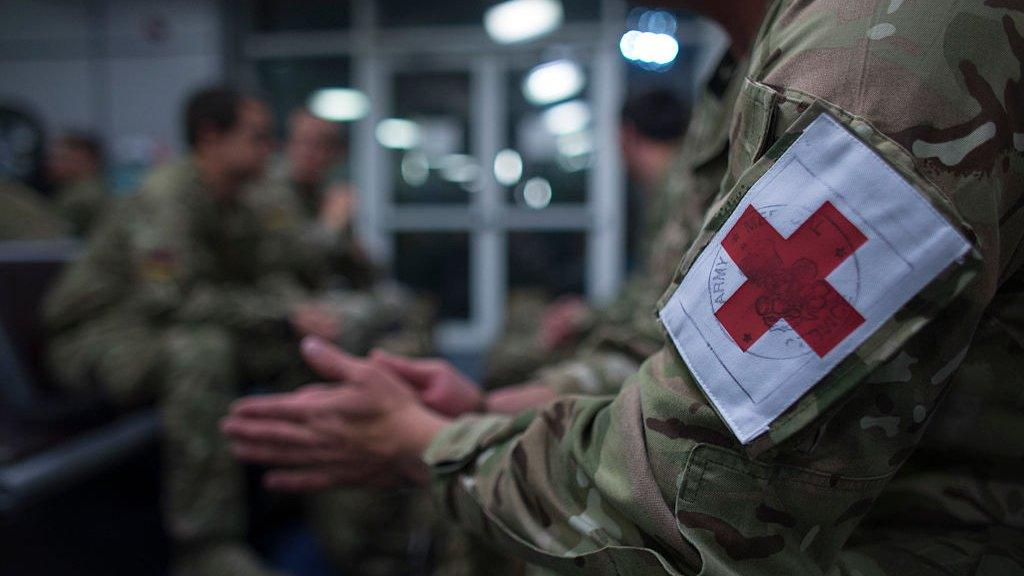
- Published14 January 2021
